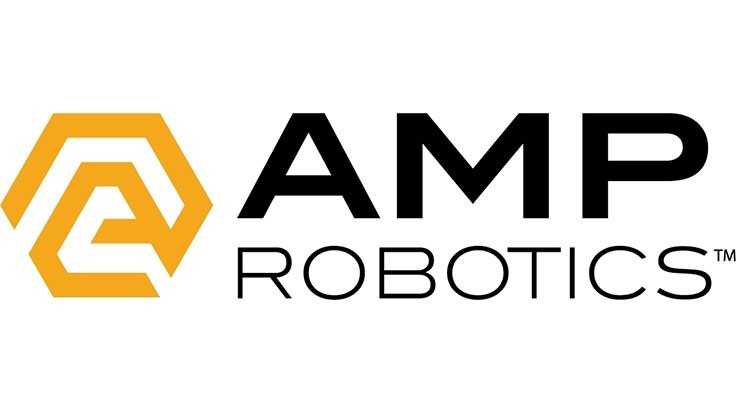DENVER, U.S. – AMP Robotics Corp. (“AMP”), a pioneer in artificial intelligence (AI) and robotics used to recover commodities reclaimed as raw materials for the global supply chain, is extending its ability to identify and pick recyclables at the brand level by working with consumer packaged goods (CPG) companies to recover higher rates of these materials. As the company expands its reach into other nodes of the circular economy, one of AMP’s first corporate partners is consumer beverage giant Keurig Dr Pepper (KDP) in support of its introduction of recyclable K-Cup® pods.
Following KDP’s conversion of its coffee pods to polypropylene, a sought-after plastic for recycled materials, the companies worked together to equip AMP’s robotics systems to properly identify and sort K-Cup pods in recycling facilities. All of the K-Cup pods KDP produces are now recyclable .
Monique Oxender, chief sustainability officer, Keurig Dr Pepper, explained, “Our move to recyclable plastic is a critical first step, but to make greater strides toward circularity, we need to improve acceptance and sortation so we can more readily incorporate recycled plastic back into our products and packaging. Recycling systems in the U.S. are diverse, and we need technology and infrastructure upgrades to improve the quality and quantity of recycled plastic available.”
AMP provides technology to help with this multifaceted challenge. The AI platform that guides AMP’s robotics systems can differentiate objects found in the waste stream by color, size, shape, opacity, brand, and more, contextualizing and storing information about each item it perceives. AI and machine learning enable the robotic sorting of material as granular as a type of plastic at a pick rate of upwards of 80 items per minute—more than two times as fast as human sorters, and with greater accuracy and consistency. This process produces a higher quantity and quality of plastic that suppliers of polypropylene resin can sell back to CPGs to create new packaging. AMP’s AI platform becomes smarter and more effective over time as the company deploys more robots; AMP can add limitless subcategories of brand-level material to meet market demand and distribute the functionality to identify and sort it across its fleet.
“Intelligent plastics sortation, powered by AI, robotics, and advanced data analytics, can have cross-value chain impact and direct benefits to plastic waste generators, sorting facilities, recyclers, and consumer packaged goods companies,” said Rob Writz, director of business development for AMP Robotics. “AI-guided sortation ensures a higher-quality end product that isn’t contaminated by other materials, and a larger volume of recycled material. Collaboration across the recycling value chain will turn product and packaging waste back into the inputs for future manufacturing while growing and strengthening our recycling system.”
In a move that demonstrates the continuous innovation of its AI capabilities, AMP has opened a new 40,000-square-foot test facility in Colorado to explore expanded applications of its technology with the goal of increasing the feedstock of recycled content for CPGs and container producers. This facility will help prototype new, economical ways to ensure recyclables are indeed recycled, even for low volumes that historically have not been economical for recovery. By lowering the cost of recycling marginal volumes, AMP aims to maximize resource recovery and quality for the manufacturing supply chain.
In July, The Recycling Partnership launched the Polypropylene Recycling Coalition to improve its recovery and recycling in the United States and further develop the end market for high-quality recycled polypropylene. The Coalition announced the first four materials recovery facilities to receive grants to fund improved sortation of polypropylene through technology like AMP’s robotics systems and support targeted consumer education efforts. KDP is a founding member of the Coalition and its largest funder; the company has committed to ongoing collaboration with industry peers and other players in the recycling ecosystem to drive meaningful change along with its financial sponsorship. The Coalition’s investments will widen total nationwide acceptance of polypropylene in curbside recycling programs by approximately 1.7% to an additional four million people, resulting in the recovery of a larger supply of polypropylene that could be made into new products.
Oxender concluded, “Investing in ways that amplify our individual actions will enable us to truly drive progress in eliminating packaging waste by improving recycling infrastructure and enhancing consumer education efforts, both of which will increase the recovery of valuable plastics.”
For more about the efforts of AMP and KDP to bring AI to the sorting process at recycling facilities to generate a higher-quality end product for reuse, see this Vox explainer . Further, at 1 p.m. ET today, GreenBiz is hosting a complimentary webcast about how innovation and collaboration is strengthening recycling with AMP Founder and CEO Matanya Horowitz, KDP’s Oxender, GFL Environmental’s Brent Hildebrand, and Sidewalk Infrastructure Partners’ Michael DeLucia.


















